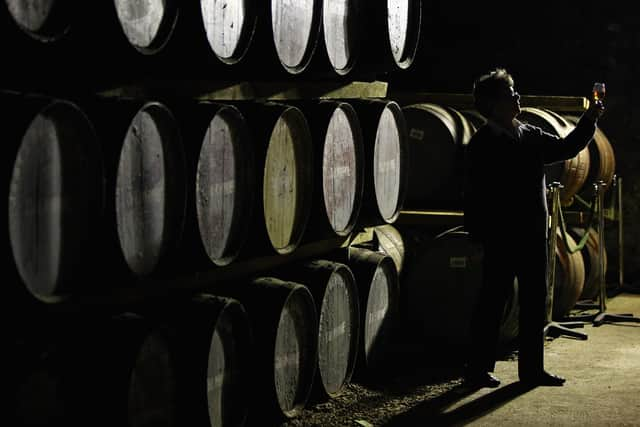Climate change: Scotch whisky industry plans to hit net-zero carbon emissions by 2040 and tackle entire supply chain too – Ivan Menezes
Scotch is a quintessentially long-term product and industry, and we plan and invest for the very long term.
I am proud that Diageo is currently re-opening the famous “ghost distilleries” of Brora and Port Ellen, but the chief executive who will enjoy sampling and selling the finished products is likely to be in university as of today. Colleagues from across our industry are laying down casks of whisky that will only be in your homes in ten, 15 or 25 years from now.
Advertisement
Hide AdAdvertisement
Hide AdThe extreme weather this summer, however, has demonstrated that the world is running out of the precious commodity of time to tackle the climate emergency. Lives and livelihoods are at stake and every business and sector must step up the pace towards net zero.
The Scotch industry has already achieved much on this journey, delivering a 53 per cent reduction in carbon emissions from our direct operations between 2008 and 2020.
We have set new targets to complete the decarbonisation of our direct operations by 2040, with many pushing hard to achieve the goal even earlier.
Yet this is not enough. We need to look beyond our own distillery gates and to take on the far greater challenge of decarbonising our supply chain – where 90 per cent of our total carbon emissions are generated – and regenerating the natural environment on which we depend.


We are focussing, with urgency, not just on the emissions from manufacturing our wonderful brands, but those embedded in our packaging, the cereals we source from farmers and the trucks and ships that transport our products to the world – what are known in environmental reporting as our ‘scope three’ carbon emissions.
The Scotch Whisky Association is collectively reviewing its environmental strategy to build plans for the industry to take on the great challenge of decarbonising our supply chains.
But this is not a challenge the industry can meet on its own.
It will take a collective effort and innovation, from grain to glass, and the forming of crucial new partnerships with governments.
Advertisement
Hide AdAdvertisement
Hide AdDecarbonising whisky supply chains represents a huge investment opportunity for Scotland, supporting the country’s leading export industry to create and secure high-value jobs in the local economy. We want to partner with the Scottish Government and all our suppliers to drive innovation, support breakthrough technologies and new ways of working.
The decade of action towards the United Nations’ Sustainable Development Goals in 2030 is already racing away from us. By the time the spirit we produce in our distilleries today is ready to be sold as 12-year-old Scotch whisky, the deadline of 2030 will have come and gone.
Now is the time to accelerate our work, to reach across our industry, our supply chains and our partners in government at all levels to create momentum for change. That is what the SWA will aim to achieve as we restate our sustainability ambitions for our industry.
Ivan Menezes, chair of the Scotch Whisky Association, writes ahead of a Scottish Enterprise/Scotch Whisky Association sustainability collaboration event
Comments
Want to join the conversation? Please or to comment on this article.
